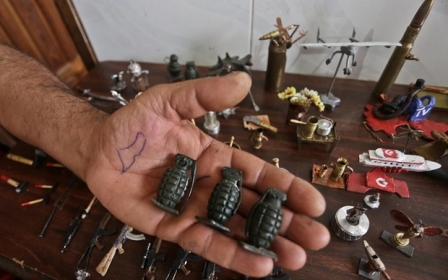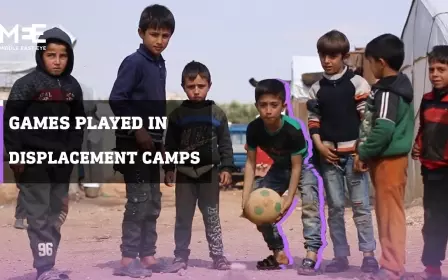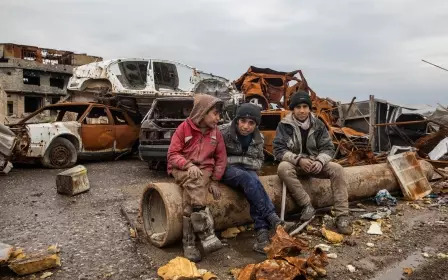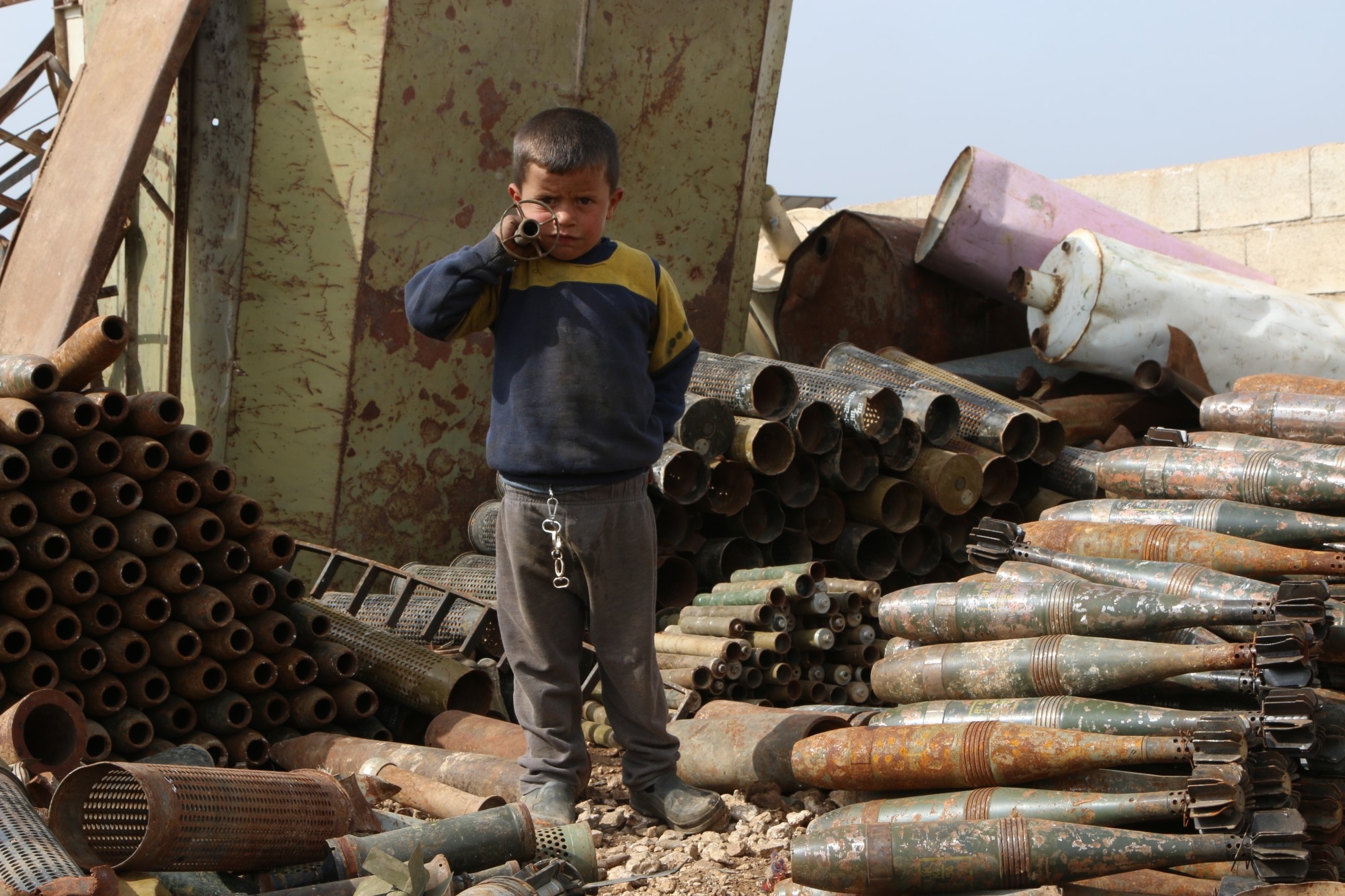
In pictures: In northern Syria, recycling remnants of war is a family business
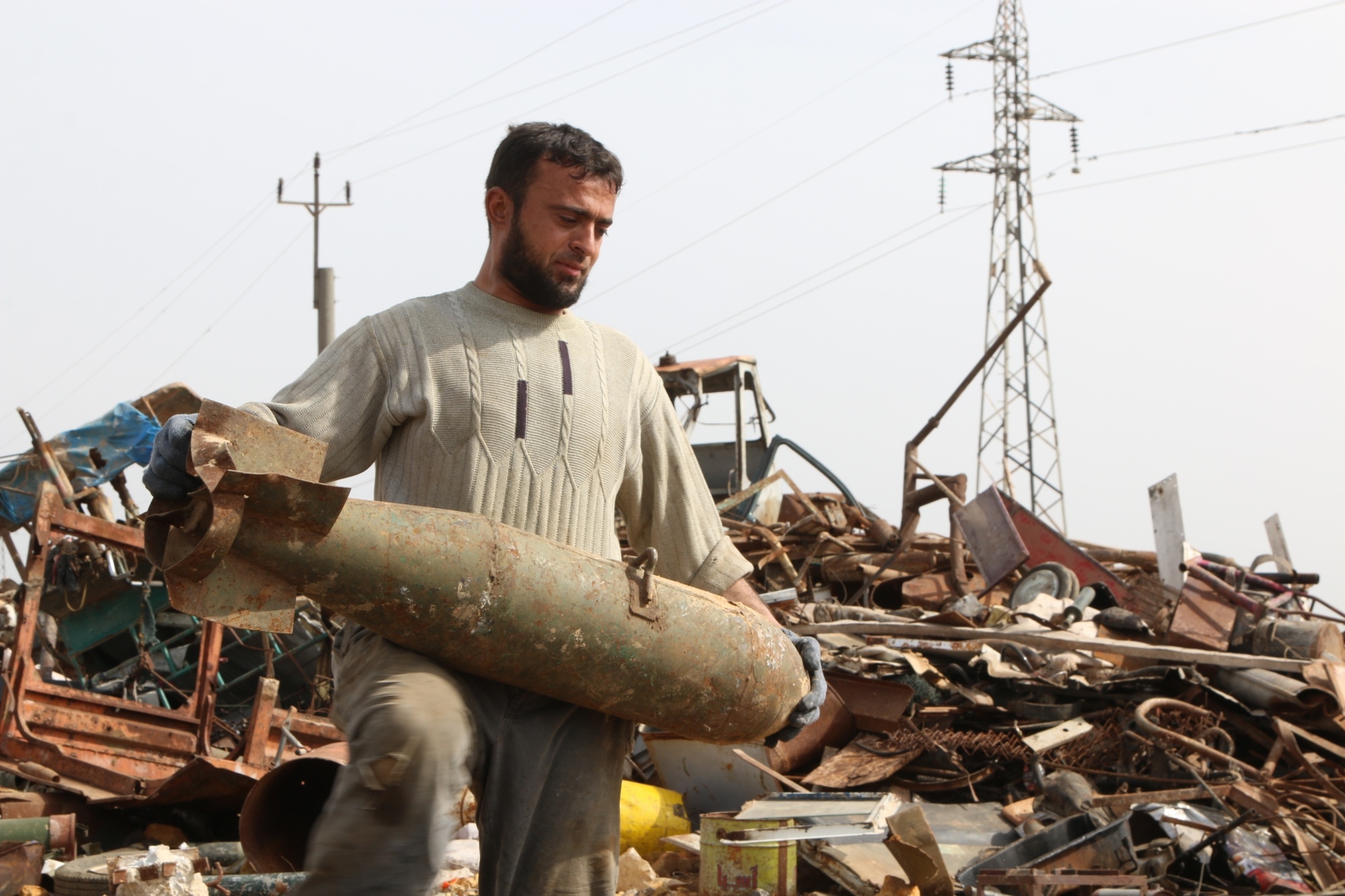
Hassan Abu Malik and his family were displaced from al-Lataminah, a village in the province of Hama, by the conflict that has raged in Syria for a decade.
Now living in rebel-held Idlib province, the Syrian man in his forties and his four young children have made a living from collecting shrapnel and unexploded shells to recycle the parts. (MEE/Mustafa Dahnon)
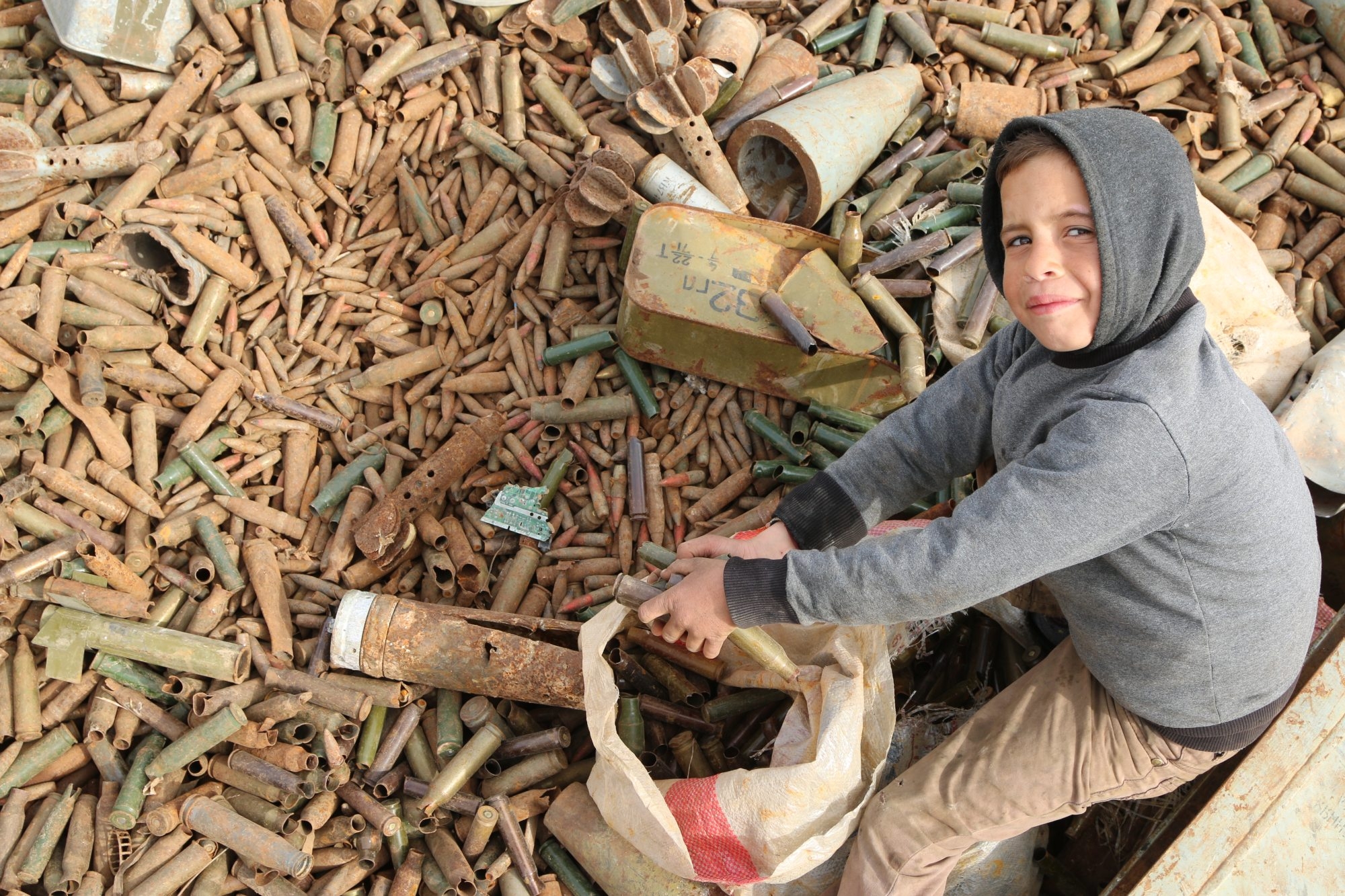
It's a dangerous job, but in the war-torn country, which is also suffering from an economic crisis amid the Covid-19 pandemic, Abu Malik said the raw materials he separates out have become a valuable resource.
Shells are converted into heaters or primitive cooking tools for homes, while blacksmiths and other workers also come to Abu Malik.
"We also sell gunpowder to construction workers as it helps them to blow up rocks and turn them into stones for construction," he told Middle East Eye. (MEE/Mustafa Dahnon)
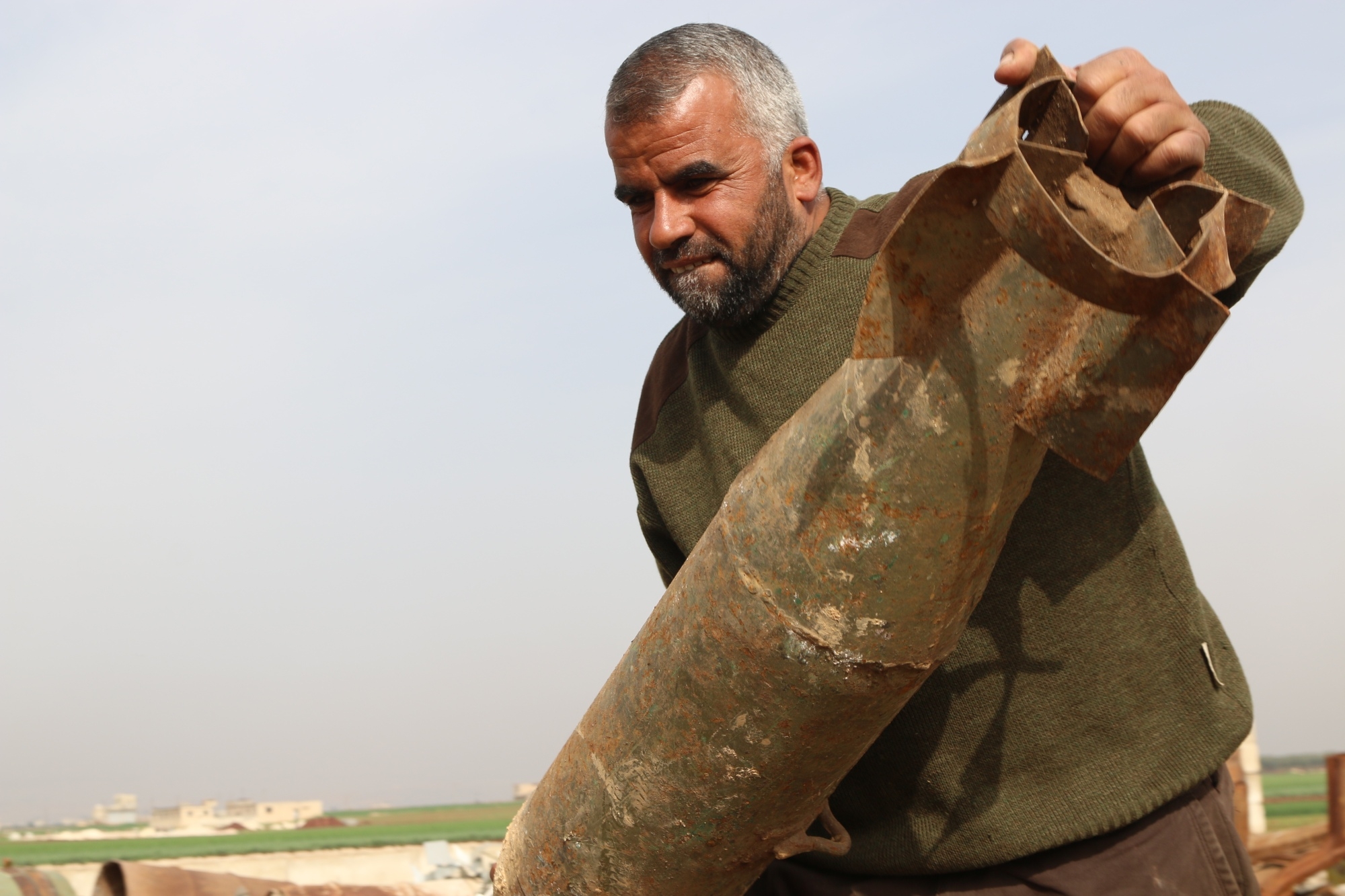
"I have been buying these shells and rockets from civilians who collect them from places that were bombed, where these killer tools have become a source of livelihood for a large proportion of civilians," Abu Malik, pictured above, said.
"In some cases, people who find unexploded missiles or shells come to us so that we can deal with them in a way that eliminates their danger from civilians. But we often lack the equipment to deal with some unexploded remnants of war in order to turn them into objects suitable for use." (MEE/Mustafa Dahnon)
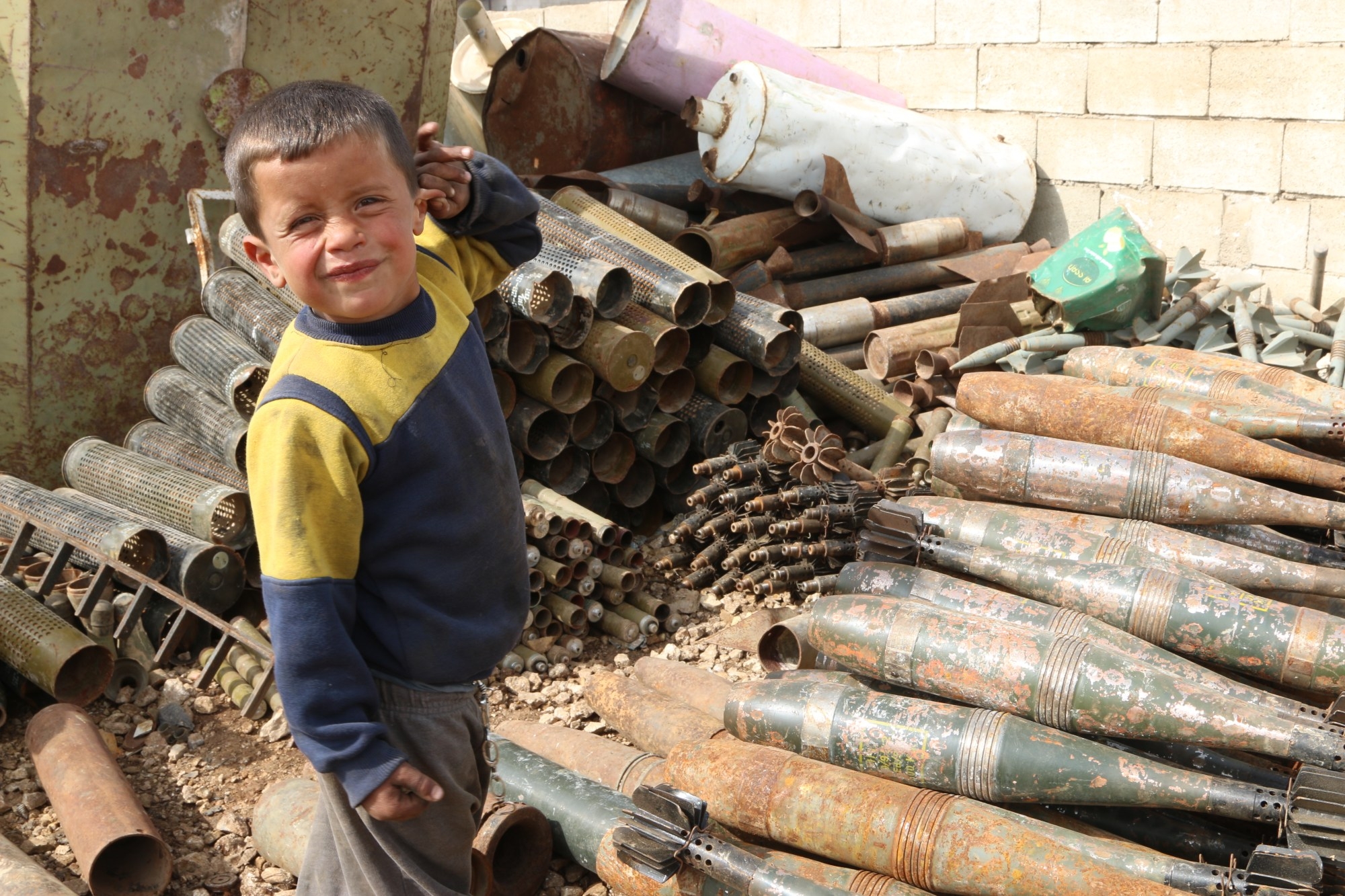
Abu Malik said his years of experience have proven valuable.
"As a result of dealing with remnants of war for nearly nine years, we have earned more experience in the field of recycling them than many institutions specialised in this matter," he claimed.
He is well aware of the risks involved, however.
According to the Halo Trust, an organisation focused on tackling landmines, unexploded mines and shells have caused at least 3,500 accidents in Syria since 2015, with 25 percent of victims young children. (MEE/Mustafa Dahnon)
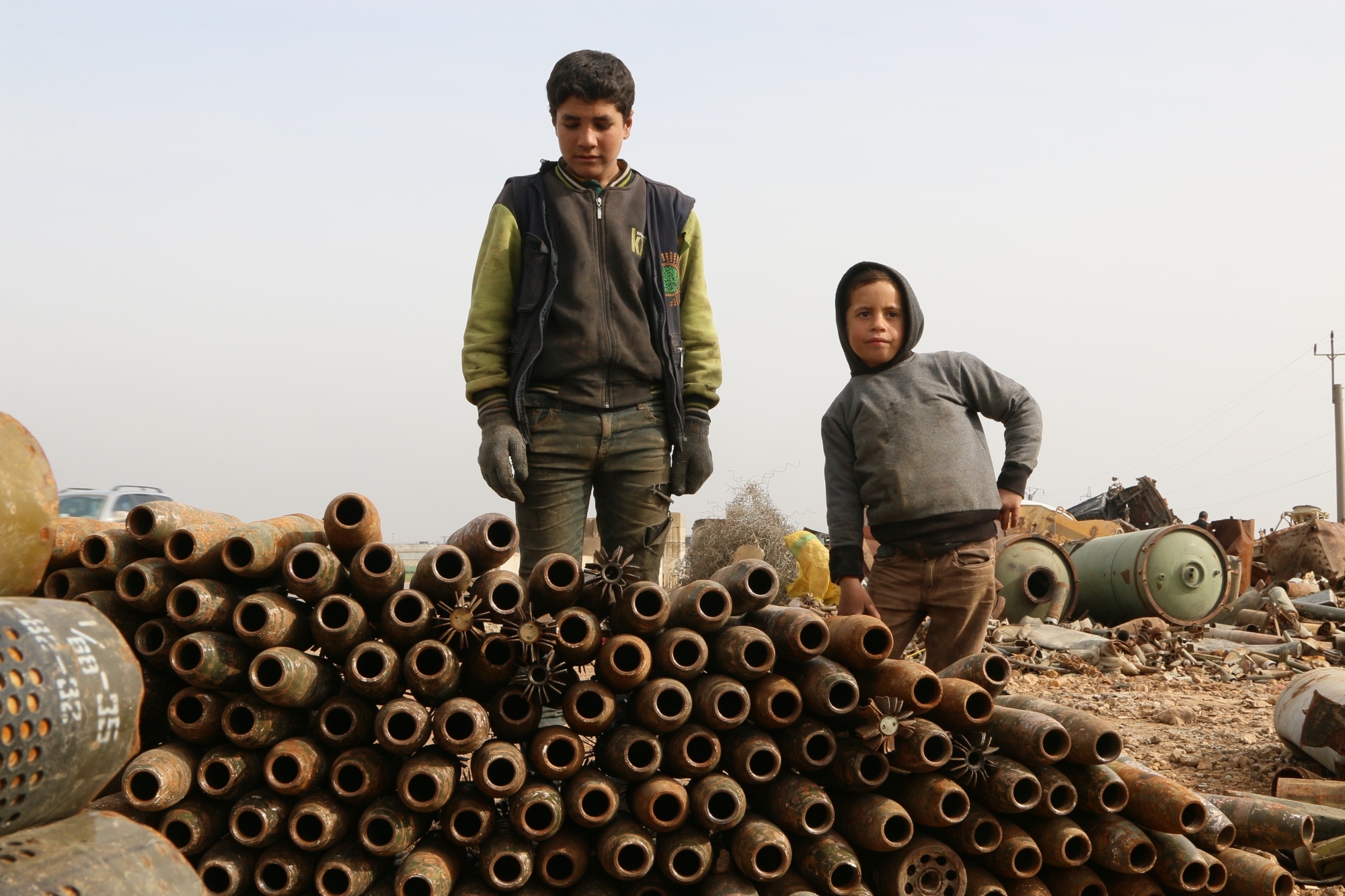
While Abu Malik's young children help with the storage of shrapnel, he said he keeps them away from work involving unexploded shells or missiles.
"My three sons, nephews and some workers help me at work, but I do not allow anyone to approach anything that may be dangerous," he said. "My sons help me after they finish school, as I place high importance on educating them.
"I believe that with knowledge, we can rebuild what the war has destroyed." (MEE/Mustafa Dahnon)
Middle East Eye delivers independent and unrivalled coverage and analysis of the Middle East, North Africa and beyond. To learn more about republishing this content and the associated fees, please fill out this form. More about MEE can be found here.


